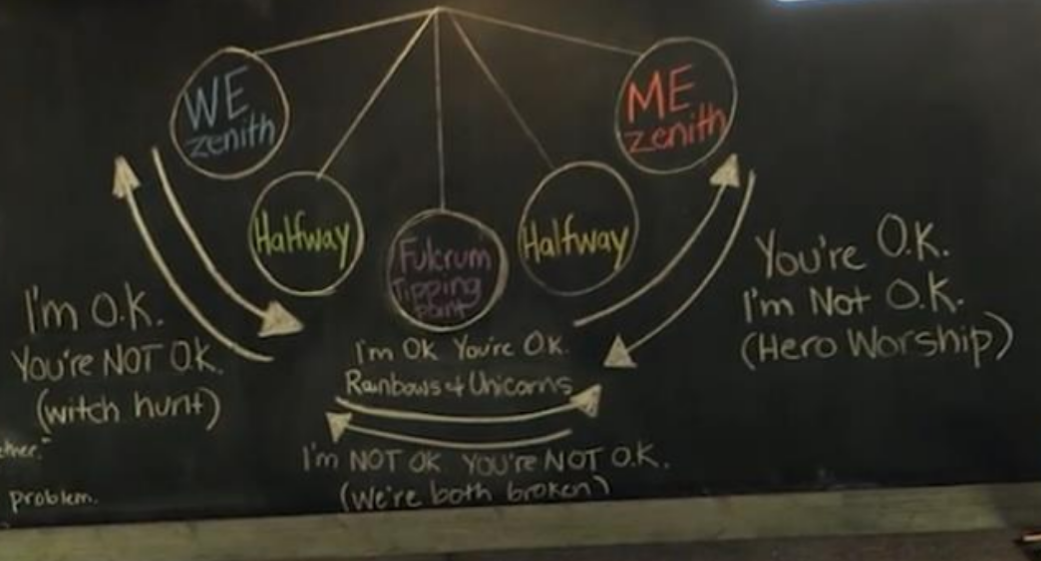Heard about this theory on Beck this morning. Apparently, we are in a "We" cycle. Below are a couple of excerpts from a website that promotes this theory. First, here is a link to the website and an image depicting key elements of this theory.

I haven't really had an opportunity to analyze this, but wanted to know of your thoughts on the topic. If any have more knowledge of this and would like to share, please do. I've come to trust the opinions of some here more so than people I know IRL.
If this is true, and we are at the zenith of the We pendulum, what are the implications? I heard Beck say on his program this morning that the last Me cycle was during the time of Reagan.
Is there any way to statistically or scientifically prove or disprove such a theory? I think that an analysis of trends might prove useful, but I'm not a statistical analyst.
I'm very tired and it's been a long day, so I might read this after posting and think "WTF?" I don't know. It is my first thread and maybe the whole topic will receive nothing more than a collective brief glance before everyone moves on.

Quote:
When we look back throughout history, there are many cycles of change that can be seen. According to Roy Williams and his extensive research of more than 3,000 years, the American economy has been carrying out the same cycle every 80 years. He calls it the "Pendulum", and its details are written out in his book: Pendulum: How Past Generations Shape Our Present and Predict Our Future.
There are similar such theories that I have heard about over the years, and perhaps they hold water OR could all be a bunch of BS. One difference in this theory as opposed to others is that It doesn't advocate that Me is good and We is bad, or vice versa. It simply states this is the way things are and have been (I suppose) since the beginning of time.Quote:
During extremes of the Me Generations arise individuals, whether it be Adolf Hitler or Ronald Reagan. This lasts for 20 years, and then it comes back down, which takes another 20 years. At the end of this 40-year turn, then a We Generation begins causing the entire process to take 80 years. When looking at this cycle, the tragedy of the matter is that we always take a good thing too far. It is this realization that causes the "pendulum" to come back down.
I haven't really had an opportunity to analyze this, but wanted to know of your thoughts on the topic. If any have more knowledge of this and would like to share, please do. I've come to trust the opinions of some here more so than people I know IRL.
If this is true, and we are at the zenith of the We pendulum, what are the implications? I heard Beck say on his program this morning that the last Me cycle was during the time of Reagan.
Is there any way to statistically or scientifically prove or disprove such a theory? I think that an analysis of trends might prove useful, but I'm not a statistical analyst.
I'm very tired and it's been a long day, so I might read this after posting and think "WTF?" I don't know. It is my first thread and maybe the whole topic will receive nothing more than a collective brief glance before everyone moves on.
